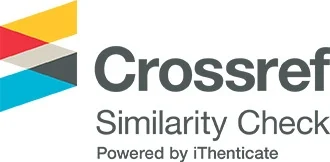Plagiarism Policy
Plagiarism and Scientific Misconduct Policy
The Journal of Sharia Sciences places the highest importance on academic and ethical integrity in all aspects of the publication process. The journal is committed to combating plagiarism and scientific misconduct in all its forms and takes strict measures to address any violations that may be discovered.
Forms of Plagiarism:
The journal considers plagiarism an unacceptable practice. It includes presenting another person’s work, ideas, or words as one’s own without proper acknowledgment of the original source. Plagiarism takes various forms, including but not limited to:
-
Verbatim copying: Reproducing a substantial portion of another work word-for-word without quotation marks and proper citation of the source.
-
Improper paraphrasing: Rewriting text from another source with minor changes in wording or structure without proper citation of the original source.
-
Using ideas or data from another work without attributing them to their source.
-
Duplicate submission: Presenting a work that has already been published elsewhere without disclosing the prior publication.
Anti-Plagiarism Measures:
The journal implements several measures to combat plagiarism, including:
-
Manuscript screening: All submitted manuscripts are checked using Turnitin to detect any unauthorized similarities or plagiarism. The similarity index must not exceed 30%, and all quotations and references to other sources must be properly documented in accordance with the writing guidelines.
-
Verification of originality: The editorial board may conduct additional checks to ensure the originality of the submitted work.
Handling Cases of Plagiarism and Scientific Misconduct:
If any instance of plagiarism or scientific misconduct (such as data fabrication or falsification) is detected at any stage of the publication process (before or after publication), the journal will take the following actions:
-
Investigation: The editorial board will conduct a thorough investigation, including contacting the author(s) involved and requesting clarifications.
-
Institutional notification: In serious cases, the author’s affiliated institution may be notified of the incident.
-
Manuscript rejection: If plagiarism or misconduct is confirmed before publication, the manuscript will be rejected.
-
Article retraction: If plagiarism or misconduct is discovered after publication, the article will be retracted from the journal, and a retraction notice stating the reasons will be published on the journal’s website.
-
Future submission ban: Authors involved in plagiarism or scientific misconduct may be prohibited from submitting any future work to the Journal of Sharia Sciences.
The Journal of Sharia Sciences reaffirms its commitment to the highest ethical standards in scientific research and publishing. It calls on all authors to adhere to this policy in order to ensure the integrity and credibility of their work and to contribute to the establishment of a trustworthy scholarly environment.




